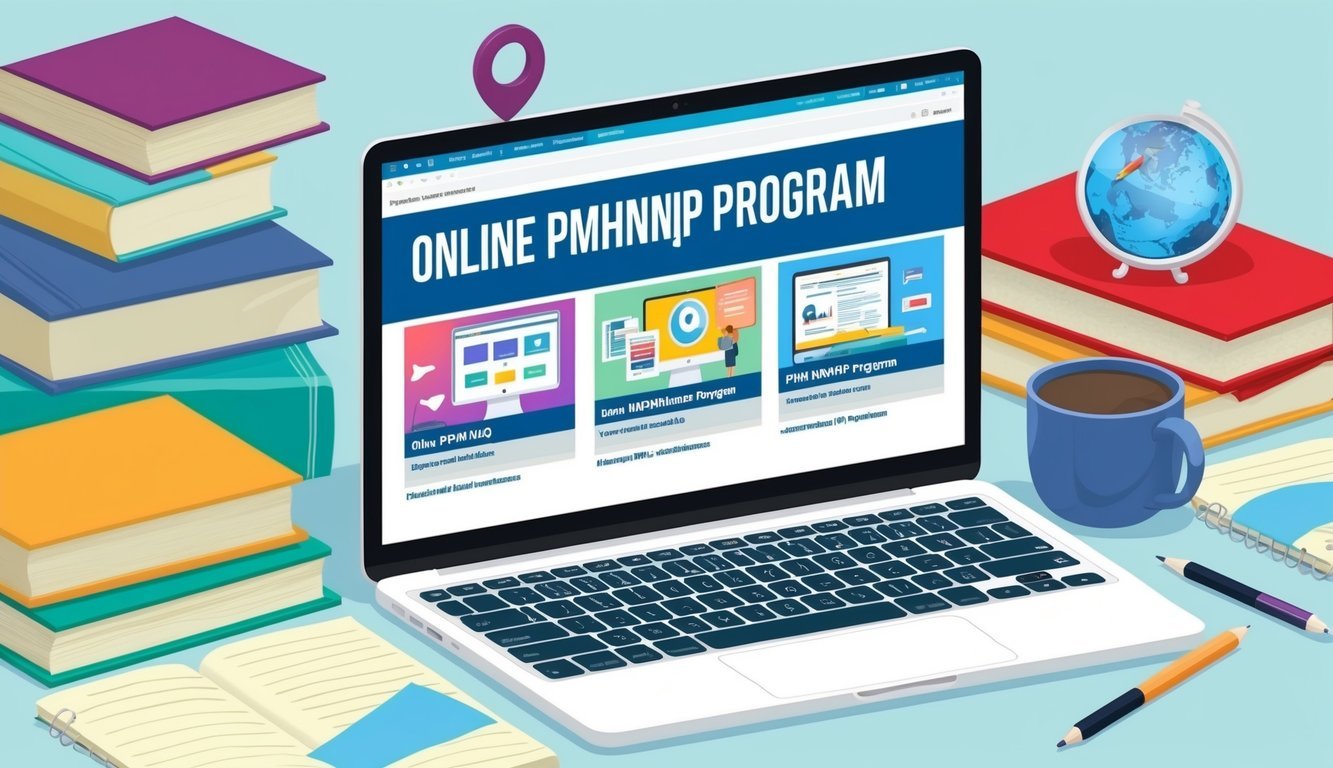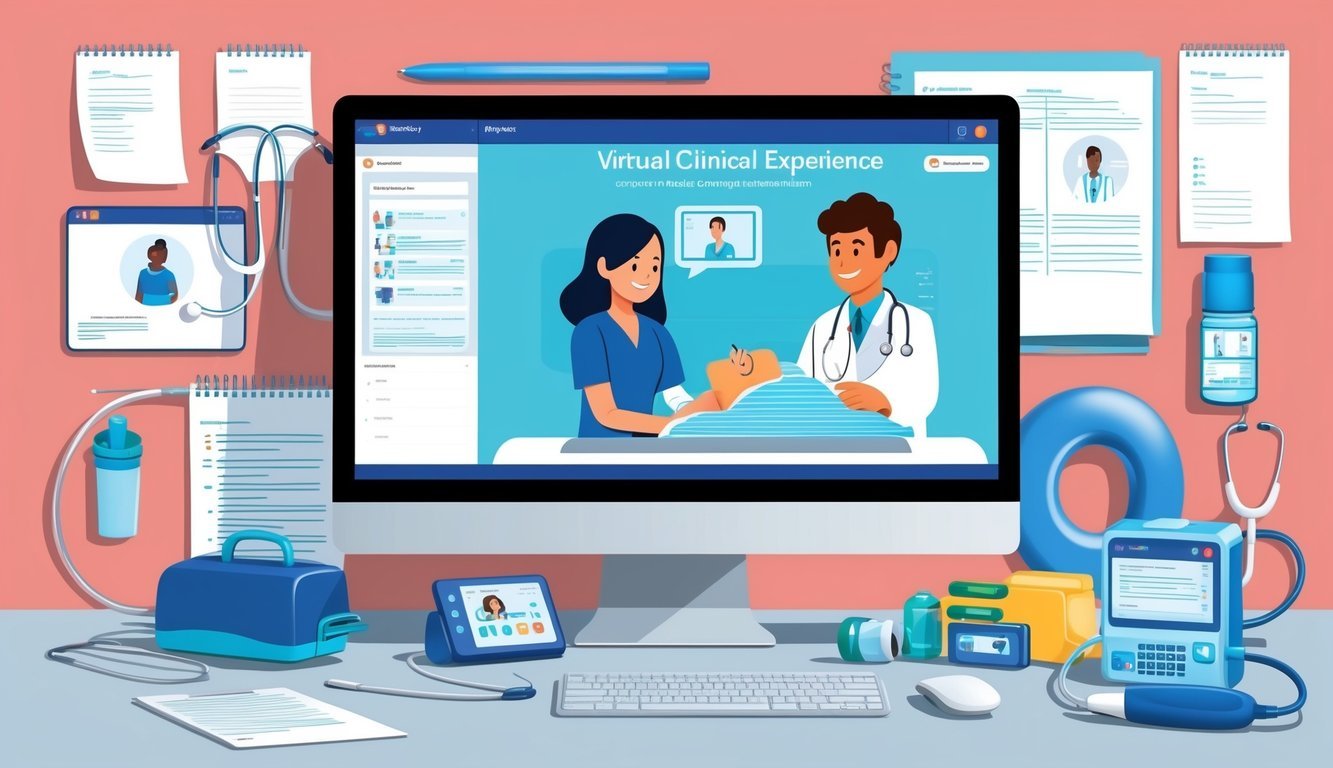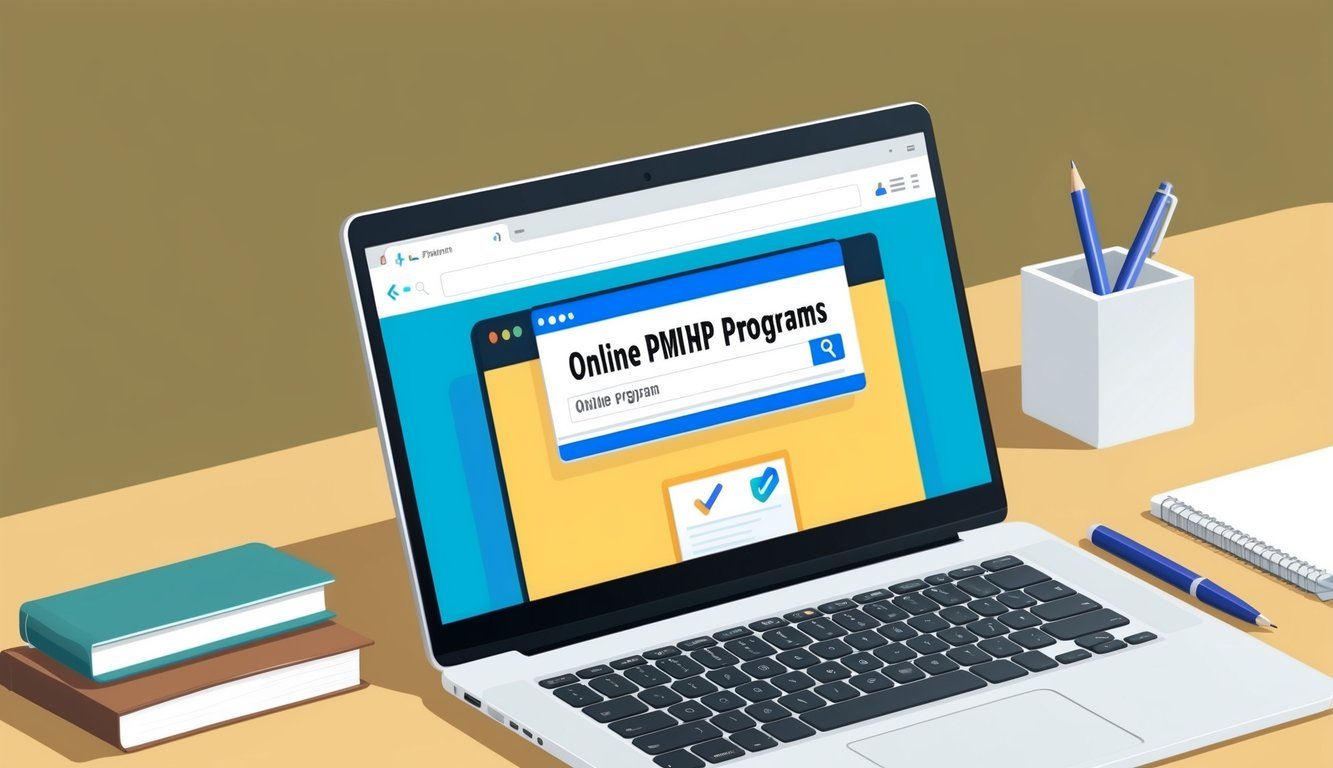As healthcare needs evolve, the demand for mental health professionals continues to rise.
Online PMHNP programs offer a flexible pathway for registered nurses to advance their careers while responding to this critical need in the community. These programs equip you with the clinical skills necessary to diagnose and treat mental health disorders, enabling you to make a significant impact on your patients’ lives.
Choosing the right program can be daunting given the numerous options available.
With varying tuition costs, accreditation statuses, and curriculum structures, you’ll want to ensure you find a program that fits your professional goals and personal commitments.
Websites like Nurse.org and NPSchools provide valuable comparisons to help you navigate your choices effectively.
Embarking on this educational journey not only enhances your qualifications but also prepares you to meet the growing mental health service demands in your community.
You’ll find engaging coursework combined with essential clinical experiences, setting you up for success in a rewarding field.
Overview of Online PMHNP Programs

Online PMHNP programs prepare you for a critical role in mental health care as a Psychiatric Mental Health Nurse Practitioner.
These programs offer a pathway to advanced practice nursing, focusing on diagnosis, treatment, and patient management in mental health settings.
Defining the PMHNP Role
As a Psychiatric Mental Health Nurse Practitioner, you play a vital role in addressing mental health challenges.
Your responsibilities encompass assessing patients, formulating treatment plans, and providing psychotherapy.
You also prescribe medications and collaborate with other healthcare professionals to ensure comprehensive care.
PMHNPs work with diverse populations, from children to the elderly, delivering services in various settings, such as clinics, hospitals, and community health organizations.
To become a PMHNP, you typically need a Master of Science in Nursing (MSN) or a Doctor of Nursing Practice (DNP) degree, with specialized training in mental health.
Many programs also require clinical practice hours to gain hands-on experience.
Advantages of Online Education
Choosing an online PMHNP program comes with several advantages.
First, it provides flexibility, allowing you to balance your studies with work and personal commitments.
With online coursework, you can study at your own pace and from anywhere, which significantly enhances accessibility.
Most programs require minimal on-campus attendance, making it easier for you to fit education into your life.
Additionally, many online PMHNP programs offer a robust support system, including networking opportunities with peers and access to experienced faculty.
Finally, online education often incorporates innovative technologies to enhance learning, ensuring that you are well-prepared for the challenges of a dynamic healthcare environment.
For more information on available programs, check out top online PMHNP programs.
Curriculum and Accreditation Standards

Understanding the curriculum and accreditation standards for online PMHNP programs is essential for ensuring you receive a quality education.
This section outlines the core competencies you will acquire and the accreditation bodies that set the criteria for these programs.
Core Competencies of PMHNPs
As a PMHNP, you will need to develop a range of core competencies to provide effective mental health care.
These competencies include:
- Psychotherapy: You will learn various therapeutic modalities, including cognitive-behavioral therapy (CBT) and other evidence-based practices.
- Psychopharmacology: Understanding the pharmacological treatments for mental health conditions is crucial. You will study medication management and side effects.
- Advanced Health Assessment: Skills in comprehensive health assessment will enable you to evaluate and diagnose mental health issues effectively.
These competencies are often taught through a combination of coursework and practical experiences during your clinical hours.
Programs typically require a minimum of 54 credits, encompassing various specialized topics.
Accreditation Bodies and Criteria
Accreditation ensures that your PMHNP program meets specific educational standards.
Major accrediting organizations include:
- Commission on Collegiate Nursing Education (CCNE): This body evaluates nursing programs on criteria such as curriculum quality and faculty qualifications.
- Higher Learning Commission (HLC): It focuses on the overall educational quality and institutional effectiveness.
When choosing a program, verify its accreditation status.
Attending a CCNE accredited program can enhance your employment prospects and ensure your education aligns with industry standards.
Be sure to check the specific accreditation of the MSN core curriculum, which is foundational for your training as a PMHNP.
Admission Requirements and Tuition

When considering an online PMHNP program, understanding the admission requirements and tuition costs is crucial.
These factors can significantly impact your journey toward becoming a psychiatric mental health nurse practitioner.
Required Nursing Experience
To qualify for admission to most online PMHNP programs, you typically need to hold a Bachelor of Science in Nursing (BSN) and a valid registered nurse (RN) license.
Many programs require at least one year of professional nursing experience, ideally in a mental health or related setting.
This experience helps you build the clinical foundation necessary for advanced practice.
Some schools may offer bridge programs if you have an associate degree in nursing.
These programs can help you transition more smoothly into a master’s program.
Financial Investment and Support
Tuition for online PMHNP programs can vary widely.
Here is a general overview of potential costs:
| Institution | Estimated Tuition Range |
|---|---|
| Chamberlain University | $40,000 – $50,000 |
| Western Governors University | $30,000 – $40,000 |
| Yale University | $50,000 – $60,000 |
Many schools offer financial aid options, including scholarships, grants, and loan programs that you can explore.
It’s essential to research each program’s tuition details, as well as available support services, to make an informed financial decision.
Comparing these factors will help you align your financial planning with your educational goals in the psychiatric nursing field.
Clinical Experience and Placement

Clinical experience is a vital component of online PMHNP programs, ensuring that you gain practical skills alongside theoretical knowledge.
This section explores how theory integrates with real-world practice and the process of securing clinical placements.
Integration of Theory and Practice
In online PMHNP programs, the integration of theory and practice is essential for developing your clinical competencies.
Courses typically cover various topics, including assessment, diagnosis, and treatment planning for mental health conditions.
You can expect a structured approach to learning, often divided into:
- Coursework: Engaging with course material that promotes understanding.
- Simulation Labs: Practicing skills in controlled environments.
- In-Person Training: Applying knowledge in live settings with real patients.
This combination prepares you for the demands of the mental health field, enhancing your ability to provide effective patient care.
Securing Clinical Placements
Securing clinical placements is an integral part of your training.
Programs often offer clinical placement services to assist you in finding suitable locations that meet educational standards.
Consider these important aspects:
- Clinical Hours: Each program requires a specific number of clinical hours, typically ranging from 500 to over 1,000 hours.
- Placement Support: Dedicated teams help you connect with facilities, ensuring that your interests align with available opportunities.
- In-Person Clinical Training: Hands-on experience is critical, allowing you to work directly with patients under supervision.
You should take advantage of these resources to maximize your learning experience and build professional relationships in the field.
Programs like those offered by WGU provide robust support in securing clinical placements.
Career Pathways and Certification
Choosing a career as a Psychiatric-Mental Health Nurse Practitioner (PMHNP) offers robust pathways for advancement and specialized certification.
Understanding the certification process and the employment landscape is vital for your career development in mental health care.
Board Certification Process
To become a certified PMHNP, you need to complete a board certification examination.
This involves obtaining a Master of Science in Nursing (MSN) or Doctor of Nursing Practice (DNP) degree through an accredited PMHNP program.
The certification exam is administered by the American Nurses Credentialing Center (ANCC) and assesses your knowledge in psychiatric mental health nursing.
Requirements include:
- 2,000 hours of clinical practice as an advanced practice registered nurse (APRN) within the last two years.
- 30 hours of continuing education in psychiatric mental health nursing.
Once you pass the exam, you will receive your PMHNP certification, validating your expertise in addressing mental health needs.
Employment Outlook and Opportunities
The job outlook for PMHNPs is promising, with a growing demand for mental health care professionals.
According to the Bureau of Labor Statistics, nurse practitioners, including PMHNPs, are projected to experience a 45% employment growth from 2029 to 2039.
This rapid growth is driven by increasing mental health awareness and a shortage of mental health providers.
As a PMHNP, you will find diverse opportunities in various settings.
These include hospitals, outpatient clinics, and community health organizations.
You may also have the option to work in private practice, providing valuable mental health services.
Staying informed about developments in advanced practice nursing will enhance your skills and marketability in this field.

